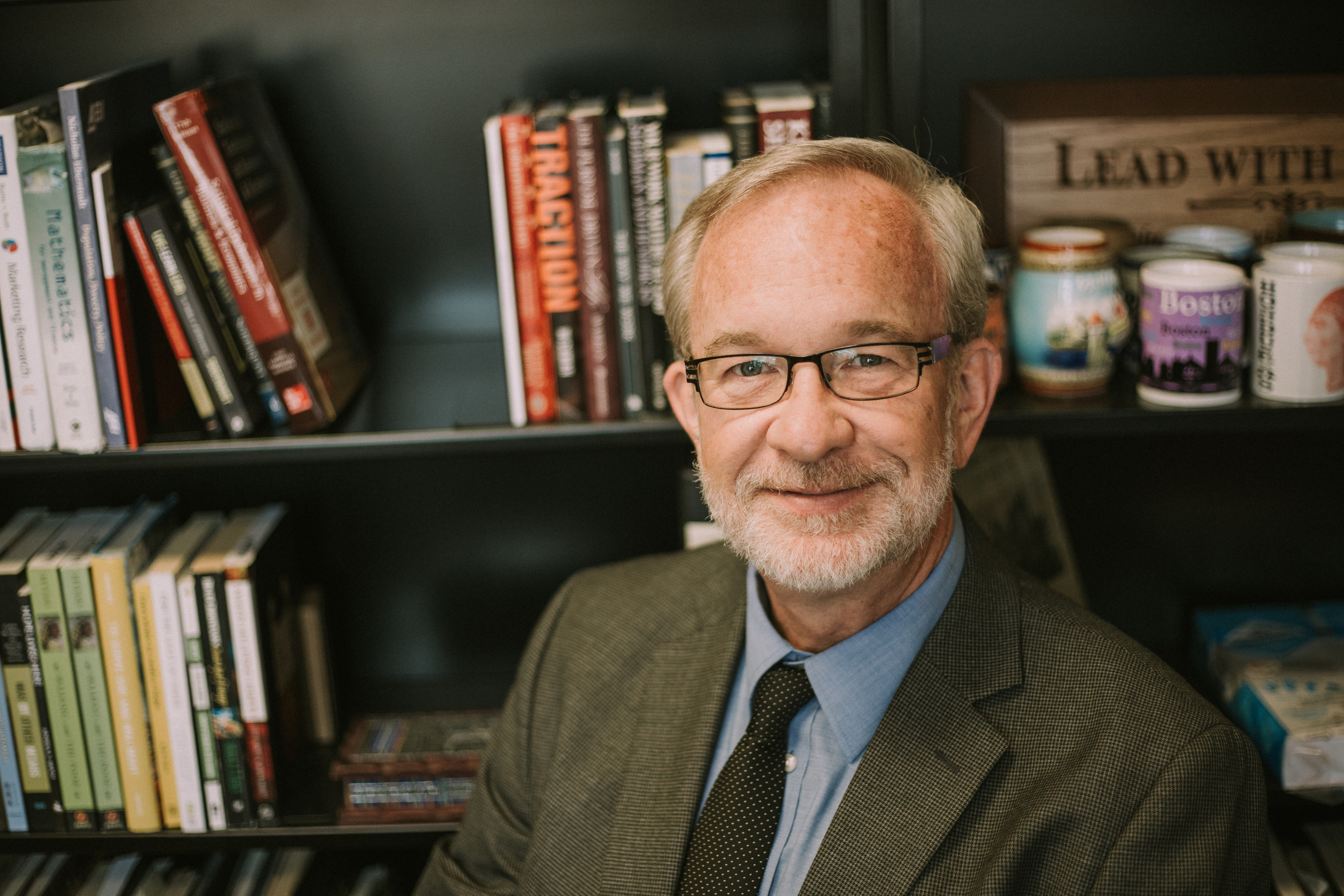Faculty Spotlight: Joe Walenciak
By Tarah Thomas '16
September 28, 2018

Joe Walenciak ’81 said he would never do two things – teach and travel. Walenciak has now taught and mentored thousands of undergraduate and graduate students at JBU for 36 years. He supports and oversees faculty and staff as the dean of the Soderquist College of Business. He has also traveled to 25 countries, taken dozens of groups on short-term mission trips and helped implement water purification systems in Guatemala. Spreading the love of Christ to all nations and being available to God is the heart of his service.
What life lessons shaped your values in how you interact with your students?
- In my first class, I started with 45 students and ended with 38. Other professors thought that I must’ve done something wrong because I should’ve ended up with 22. But my goal was for my students to succeed. You should measure my success not by how many students I drive away but by how many students succeed in my class.
- I was in two doctoral classes when I learned my father passed away. I called my two instructors. One said to take the time I needed, and the other said be in his class tomorrow or drop the program. When the first instructor saw me the next morning and heard what my second professor said, he told me, “School’s important, but this is life. There are times when you need to stop school and deal with life.” I’ve heard myself say that over the years. I realized that God was using that moment to ask me which instructor I would be.
- I read the story of the shepherd who had 100 sheep. Ninety-nine did what they were supposed to do, and one didn’t. Jesus said put extra time to the one. I thought this concept could be applied to Christian higher education. I need to put the extra effort into the one student who might be struggling or not as engaged as the others.
What are the three principles you want to instill in students?
- Be available and open to what their future could look like, instead of demanding God to adhere to their plan.
- Sometimes you find your greatest joy in the things that start out as your greatest fear.
- Be a person of faith first, and what you are in your vocation second.
What experiences hinted to you that teaching was your calling?
- My first-grade teacher would tell my mother, “Joe’s going to be a teacher someday because he finishes his work quickly, gets up and walks around the room to help other students.”
- I was a graduate student at the University of Arkansas. They were in need of professors and asked, “Do you want to teach a class?” I opened my mouth to say “no,” and I heard the word “yes” come out. I thought, “Where did that come up?”
- When I saw students understand and start to get the concepts, something lit up inside of me. I began to really enjoy that. It was a surprise because I never thought I would.
As a senior faculty member, how do you view your role as an administrator?
- The younger faculty are in their golden years of teaching like I once was. Now, my golden years are investing in them, giving them my resources and encouragement and removing their obstacles so that they can stay here a lot longer than I will.
- My goal is to continue to embrace change, not resist it.
- You have to embrace a desire for relevance and understand that the future is not going to look like the past. The values have to stay there, but we have to embrace a relevant future and work hard toward it.
How has your work impacted your faith?
- I’ve met new people from all over the world.
- I’ve been challenged in how I live and communicate the Christian worldview from the perspective of creation, fall and redemption.
- I have an understanding that God has Christians all over the world who are connected by the heart and core of the Christian faith, which is who Jesus and God are.
What are three things that bring you joy?
- Coffee
- Connecting with people, connecting people with each other and building collections of people.
- Seeing students learn, grow, succeed and fulfill their goals.

